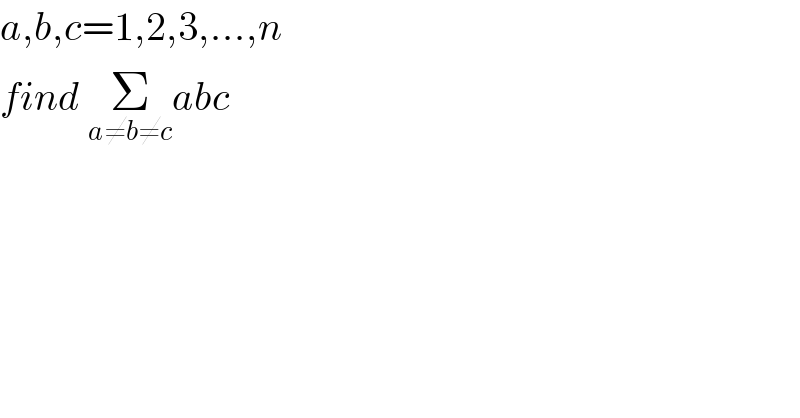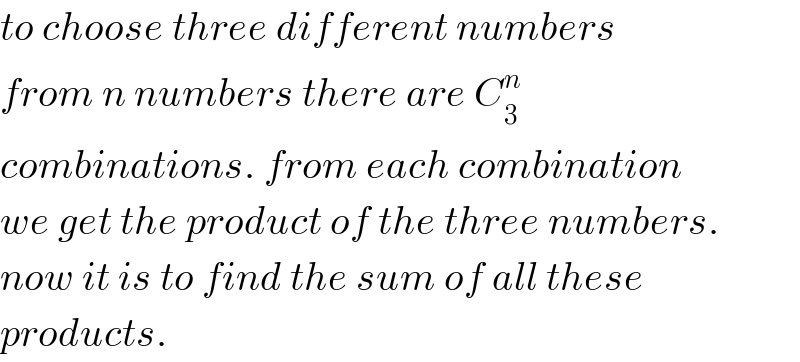Question Number 87313 by mr W last updated on 03/Apr/20

Commented by mr W last updated on 04/Apr/20

Commented by mr W last updated on 04/Apr/20

Commented by mr W last updated on 03/Apr/20

Commented by MJS last updated on 04/Apr/20

Answered by mr W last updated on 04/Apr/20
![S=Σabc=(Σ_(a=1) ^n a)(Σ_(b=1) ^n b)(Σ_(c=1) ^n c)=[((n(n+1))/2)]^3 S_1 =Σ_(a=b=c) abc=Σ_(a=1) ^n a^3 =((n^2 (n+1)^2 )/4) S_2 =Σ_(a,b=c≠a) abc=3Σ_(b=1) ^n [(Σ_(a=1) ^n a−b)(b^2 )] =3Σ_(b=1) ^n [(Σ_(a=1) ^n a)b^2 −b^3 ] =3[(Σ_(a=1) ^n a)(Σ_(b=1) ^n b^2 )−(Σ_(b=1) ^n b^3 )] =3[((n(n+1))/2)×((n(n+1)(2n+1))/6)−((n^2 (n+1)^2 )/4)] =(((n−1)n^2 (n+1)^2 )/2) S_3 =Σ_(a≠b≠c) abc=(1/(3!))(S−S_1 −S_2 ) =(1/6)[((n^3 (n+1)^3 )/8)−((n^2 (n+1)^2 )/4)−(((n−1)n^2 (n+1)^2 )/2)] =(((n−2)(n−1)n^2 (n+1)^2 )/(48)) example: n=4 S_3 =((2×3×4^2 ×5^2 )/(48))=50 1×2×3+1×2×4+1×3×4+2×3×3 =50 example: n=5 S_3 =((3×4×5^2 ×6^2 )/(48))=225 1×2×3+1×2×4+1×2×5+1×3×4+1×3×5+1×4×5 +2×3×4+2×3×5 +3×4×5 =225](https://www.tinkutara.com/question/Q87368.png)
